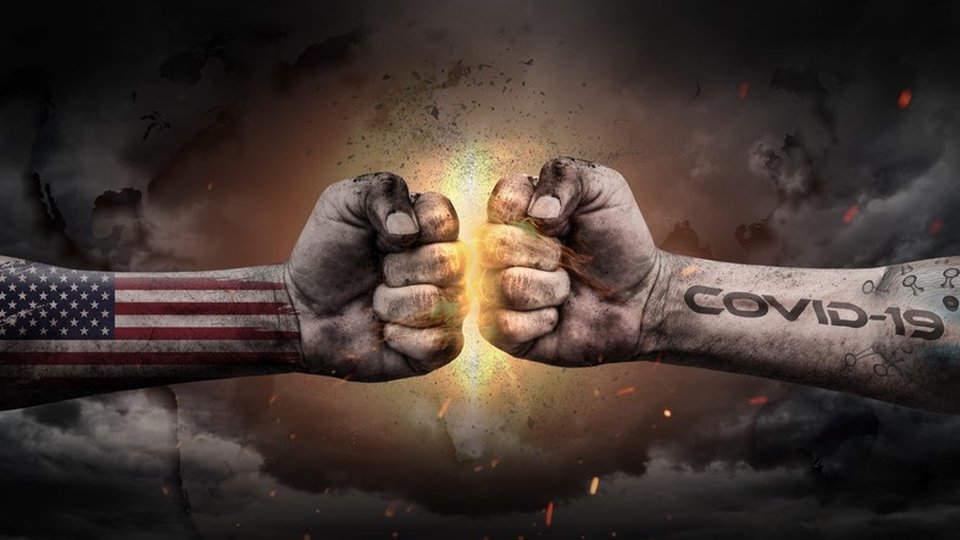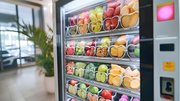Vending
How convenience services operators recover lost sales
A panel of vending operators agreed on the need to explore growth opportunities in the face of the COVID-19 setback, limited as they are. These include expanding into home delivery, operating 'ghost' kitchens and getting involved in local fundraising efforts.

August 17, 2020 by Elliot Maras — Editor, Kiosk Marketplace & Vending Times
Surviving COVID-19 has been the most difficult challenge convenience services has faced, and few are expecting any letup in pressure any time soon.
Options for survival are limited and mostly common sense, according to a panel of operators who spoke during a webinar, "Navigating the new landscape of vending and micro-markets," hosted last week by the National Automatic Merchandising Association.
The panelists agreed on the need to explore growth opportunities, as limited as they are. These include expanding into home delivery, operating "ghost" kitchens and getting involved in local fundraising efforts.
They also agreed on the importance of having the right mindset — based on a realistic understanding of the seriousness of the challenge that won't be resolved until an effective vaccine becomes available.
"I do not believe that business is going to come back — at least people to offices — until two or three months after a successful vaccine is out," said panelist Craig Kushner, owner of Monumental Markets in Beltsville, Maryland, whose business has fallen 70-71%. "The only hope that we have is a good vaccine that allows people to feel safe about returning to work."
Geographic variances
Kushner, whose business is mostly in micro markets with some OCS and pantry service, faces an especially challenging scenario since the Washington, D.C. market he serves does not have a lot of manufacturing accounts, a customer base that has recovered more than white-collar locations.
Kushner has found it helpful to pare his product offerings to the top-selling stock-keeping units.
SKU paring makes sense given the fact that product suppliers do not have as many products, the panelists agreed. The pandemic has undermined many suppliers' ability to sustain their SKUs, a problem they pass along to their customers.
Supply chain challenges
Supply chain issues are not limited to the vending channel, which one panelist, Rhonda Dunn, owner of Machine Cuisine Vending, Kingman, Arizona, has tried to capitalize on. When she noticed that grocery stores' SKUs were limited, she began reaching out to consumers to try and meet their needs.
"You've got to delve into your community and see what need needs to be filled," she said.
She has found herself spending a lot of time trying to find alternative product sources in an effort to meet both her own company's needs as well as the at-home market. She has been able to win some additional business delivering products to consumers at home.
Some home delivery customers are people who do not want to go out to the store, she said, including some cancer patients. There is a minimum for this service, but some customers have found a value to it.
Anyone with a smart phone can order from Amazon, she said, but many people are not sufficiently tech savvy.
Dunn, whose company has lost about 30% of its business, said she is exploring the possibility of offering a coffee delivery service for homeowners.
Supply chain has also been an issue for Healthy Generation Vending in Houston, said company co-owner Michael Ray.
In addition to COVID-19, Ray's company faces a downturn in the oil and gas industries. On the positive side, the state has allowed businesses to stay open. He has been able to keep a lot of his "essential" business customers.
Being heavily weighted in shipping helped Ray's business as the shipping business has done well and is up about 40%, he said. But his OCS and pantry business has almost disappeared.
"Most of my offices are at 20% if they have people in them," he said.
To cut costs, Ray has turned off cashless readers. He has also reduced the number of routes from four to two and a half, and he has also reduced product par levels.
Fundraising opportunities
Panelist Scott Halloran, CEO of Trolley Refreshment Services in Richmond, Virginia, whose business is down 55%, has worked with school related fundraising activities to recover some of his lost revenue. Schools will be closed until the end of the year and the fundraising activities have stopped. Hence, he is putting together a fundraising program to prepare and deliver family meals, with a portion of the sale going to the organization, such as a school or a sports program.
He has also reached out to local charities to help them with their fundraising.
Halloran has also reached out to accounts that have closed and asked to delivery family meals to their employees. In addition to enabling him to recover some lost revenue, this will allow him to stay close to customers.
'Ghost' kitchens
Halloran has also been exploring "ghost" kitchens, preparing and delivering food to consumers using third party delivery services. "You create a virtual brand and start selling your food just like a restaurant does on Grub Hub," he said.
He agreed with Kushner that it is important to confront the harsh reality, and he also agreed it will last until a vaccine is out which he thinks won't happen until late Q2 of next year.
Customer safety concerns
Asked about the demand for personal protective equipment, the panelists agreed that the demand is still strong for safety masks, but not hand sanitizers.
One listener asked the panelists for ideas for disinfecting products currently at the micro-market.
Halloran said a contact in the commercial cleaning industry suggested using fogging devices to disinfect products in micro markets. But if you spray today and fill the market tomorrow, what do you accomplish?
"It's only as good as when the first person touches it, then it's no longer sanitary," Halloran said.
Asked about requests for touchless vending solutions, Halloran said there have been some such requests from people who have not yet returned to work. The manufacturing accounts that are already back to work are less concerned about having touchless options.
"I definitely think it's more the white-collar environment," agreed Ray.
Some customers have asked him to switch back to vending from micro markets because vending is safer, Halloran said, a subject that has been debated since the pandemic began.
Halloran, who said there are pros and cons to vending and micro-markets from a safety perspective, said the question may lose its importance once a vaccine becomes available.
The panelists agreed they must remain steadfast in their efforts to sustain profitability during the pandemic.
"It's never going to go back to being the way it was," Dunn said. "People have had to make too many adjustments and change the way they do things."
For an update on how the coronavirus pandemic has affected convenience services, click here.
About Elliot Maras
Elliot Maras is the editor of Kiosk Marketplace and Vending Times. He brings three decades covering unattended retail and commercial foodservice.
 ChatGPT
ChatGPT Grok
Grok Perplexity
Perplexity Claude
Claude






